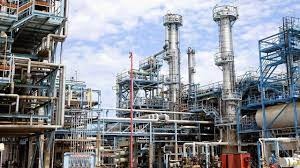According to a report by Reuters, the Nigerian National Petroleum Company Limited (NNPC) is discontinuing crude oil swap contracts and transitioning to cash payments for petrol imports. This change comes after the removal of petrol subsidies in the country, as part of President Bola Tinubu’s plan to deregulate the petrol market and alleviate the financial burden on the government.
Previously, the NNPC had been utilizing crude oil swap contracts with traders, exchanging crude oil for refined petroleum products. However, the state-owned company will now make cash payments for petrol imports. This shift marks the first time the NNPC has announced the termination of crude swap contracts. Private companies are expected to begin importing petrol this month, reducing the reliance on NNPC for petrol supplies.
The NNPC has been importing petrol through Direct Sale Direct Purchase (DSDP) contracts with foreign and local trading firms since 2016. These contracts allowed the NNPC to repay the traders with crude oil due to insufficient cash reserves. However, the recent move aims to enable cash payments for petrol imports, reducing the need for swap arrangements.
Nigeria, as Africa’s largest crude producer, has traditionally imported most of its refined products due to the state of its refineries. In 2022, the country’s petrol import bill reached N5.2 trillion, the highest in six years. The decision to shift away from imported fuel and towards self-sufficiency has been a challenge, with disruptions to oil production and global fuel price fluctuations contributing to NNPC’s debt to traders, which currently stands at around $2 billion.
Despite the transition away from crude swap contracts, NNPC is reportedly still allocating crude for fuel swaps for July loading, although in reduced quantities compared to previous months. Additionally, NNPC’s group CEO, Mele Kyari, confirmed that private firms could commence petrol imports as early as this month, signifying the end of NNPC’s monopoly on petrol supplies.
Meeting the demand for petrol remains a concern, especially with the recently commissioned Dangote Refinery requiring 650,000 barrels per day (bpd) of supply. Nigeria has struggled to meet its OPEC oil quota of 1.742 million bpd due to challenges such as oil theft and illegal refining. NNPC has a contract to supply 300,000 bpd to the Dangote Refinery, and the country’s current crude and condensate output stands at 1.56 million bpd.










